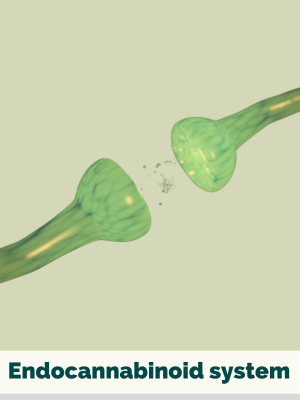Understanding the plant
THC, or Tetrahydrocannabinol
THC, or Tetrahydrocannabinol, is a psychoactive compound found in the cannabis plant. It is found in raw plant material, predominantly in its acid form, Tetrahydrocannabinoic acid or THCa. Over time or through heating THCa turns into THC through a process known as decarboxylation.
THC’s chemical structure is similar to a naturally occurring neurotransmitter called anandamide, which interacts with our endocannabinoid system. This resemblance allows THC to bind to CB1 and CB2 cannabinoid receptors in the brain and nervous system.
When THC binds to CB1 receptors, it alters normal neurotransmitter function, and can produce a range of effects, including euphoria, relaxation, and changes in appetite.

Usage
THC has analgesic properties and can be effective in relieving chronic pain conditions, including neuropathic pain, arthritis, and pain related to cancer or surgery.
THC can be useful for managing chemotherapy-induced nausea and vomiting in cancer patients. It is often used in combination with other cannabinoids like CBD for enhanced anti-nausea effects.
THC may help reduce muscle spasms, stiffness, and pain associated with conditions like multiple sclerosis (MS).
THC is known for its ability to stimulate appetite, making it beneficial for individuals with conditions like HIV/AIDS and cancer who experience appetite loss.
Some individuals with PTSD may find relief from symptoms such as anxiety and nightmares, through the use of THC-containing products.
THC can temporarily lower intraocular pressure, which is beneficial for individuals with glaucoma.
While standalone CBD is used in some cases of epilepsy treatment, some individuals with treatment-resistant epilepsy have found relief from seizures with low THC-based products.
THC may help alleviate symptoms of IBD, including pain and inflammation.
THC’s sedative effects can assist some individuals in falling asleep.
Research suggests that THC may have neuroprotective properties and could be beneficial in managing neurodegenerative conditions like Alzheimer’s disease and Parkinson’s disease
Appropriate doses of THC may provide temporary relief from symptoms of anxiety and depression.
Side Effects
As with all medications there are always side effects, and the active ingredient(s) will not agree with everyone. Most side effects have been described as transient and mild.
The most common adverse effects from THC experienced by patients include dizziness, drowsiness, nausea, heart palpitations, and short term memory loss.
*Disclaimer: While this content has been reviewed by scientific and/or medical experts, it is for informational purposes only, and should not be taken as professional medical advice.






